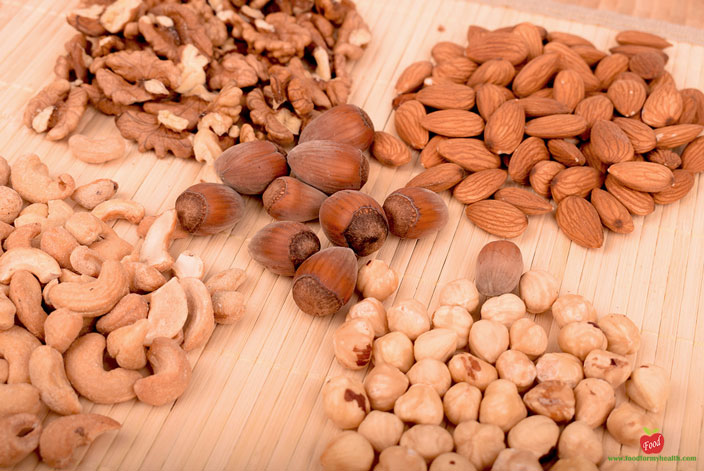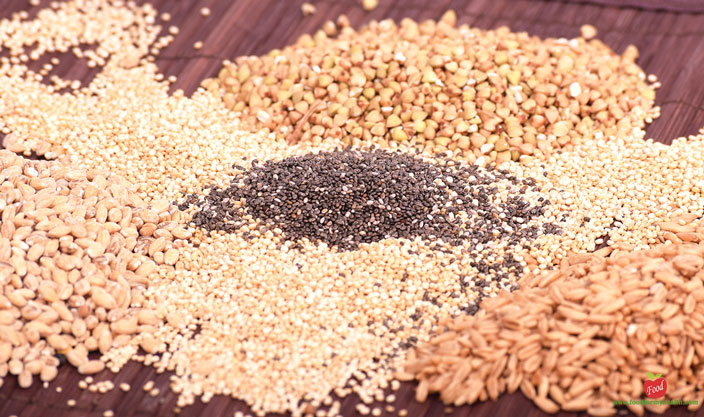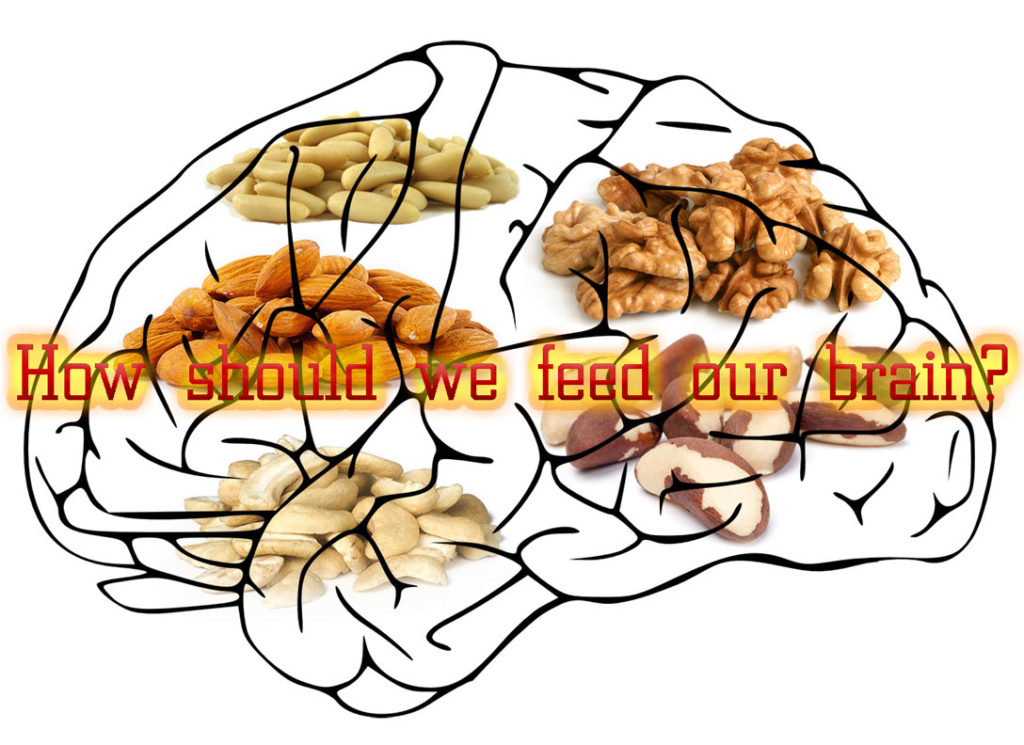How should we feed our brain?
The brain is not an organ like any other. It is the largest consumer of oxygen and energy, and with good reason. It is our computer that runs non-stop, 24 hours a day. If we are forgetful at a young age is not a big problem, but as we age, it is harder to remember, to concentrate and learn. The brain is the only organ that cannot regenerate, so as we age the numbers of brain neurons are being reduced. This process is influenced by many factors and it can be slowed down. Food is one of those “beneficial” factors. As Hippocrates said:
Let food be your medicine and your medicine be your food.
The nervous system is a very complex part of our body, controlling large part of our vital functions and our responses to emotions. The brain represents all central nerves. For its basic functioning requires only two ingredients: oxygen and sugar (glucose). But, brain controls other aspect, such as memory, reasoning, self-control and it requires large amount of nutrients for good nervous system health.
For example, lack of magnesium will cause anxiety and concern. B-group vitamins have a great impact on the proper functioning of the nervous system in general, lack of vitamin B6 leads to nervousness and fatigue, a lack of vitamin B1 will lead to depression and irritability.
Unsaturated fatty acids, which are especially found in nuts, are also very important for the health and development of the nervous system. In short, grains and nuts have the best balance of nutrients needed for the nervous system.

Nuts (such as almonds, walnuts, Brazil nuts, pine nuts) and seeds (sunflower, sesame, flax), as well as their products (peanut butter, butter of pumpkin seeds, almond milk, etc.), are an excellent source of vitamin E, which is the main brain fuel that affects our intellectual abilities. Zinc is an important mineral that these foods are rich, and affect cognitive abilities.
Almond – for strong nerves
Almonds are useful and healthy food, which contains a large part of the recommended daily intake of vitamins, minerals, fiber, and amino acids.100 g (3.5oz) of almonds, contains 22g carbohydrates of which 12g of dietary fiber, which is 49 percent of the required fiber a day. Almonds are a good source of vitamin E, calcium, phosphorus, iron, and magnesium. It also contains zinc, selenium, copper, and niacin. Compared to other nuts, almonds are one of the most nutritious nuts. Quality fatty acids and among them, there is a specific linoleic acid, which is of great importance for the proper functioning of the nervous system. Almond is rich in vitamins B1 and B6 and especially rich in calcium (it has more than milk) and phosphorus, due to ideal balance of these two minerals, almond is a powerful tool in maintaining stability and preventing muscle nerve irritation.
A healthy nervous system means better and happier thoughts. In fact, some are even studies have shown that a lack of omega-3 fatty acids can cause depression. Given the fact that they are rich in magnesium, which helps in better blood flow, almonds are an ideal food if you want to keep the brain sharp. Including almonds in regular diet will bring the body additional quantities of l phenylalanine – an essential amino acid, which may additionally contribute to your mental health.
Walnuts-the ultimate brain food
Not only nuts they taste good but they give us a tremendous amount of energy and provide many health benefits. The Greeks called them “Jupiter fruit ‘, considering walnuts fit for the gods. Since ancient times, the walnuts are connected with the human intellectual – the nut has the shape of the human brain! Walnut is an incredible source of valuable nutrients, contains antioxidants, high-quality fatty acid, iron, calcium, magnesium, phosphorus, zinc, manganese, selenium, vitamin B, E and K. Only 30g (1 oz) of walnuts daily can significantly improve your health. All nuts are good for health, but compared to other nuts, walnuts contain twice the antioxidants. High amounts of omega-3 fatty acids in walnuts make it an excellent food for the brain and people with insufficient intake of omega-3 fatty acids have difficulties in behavior and learning. Walnut oil has a contribution in reducing stress levels and lowers high blood pressure caused by stress. And if you have trouble sleeping, eat five walnuts after dinner, they will provide a peaceful sleep.
Cashews – rich in magnesium
Cashew nut is one of the biggest treasure troves of magnesium among plants (has it far more than meat, milk, and eggs; only sunflower seeds have more magnesium than cashews). Due to its high content of magnesium is very important for a variety of metabolic processes in the human body, especially for the transmission of nerve impulses. Since it is also rich in vitamins B1 and B2 and is of great benefit to the overall stability of the nervous system. It has a very beneficial effect in cases of nervousness, irritability, weakness, high exhaustion and depression.
Brazil nuts – rich in vitamins B1 and selenium
The most important nutritional qualities of Brazilian walnut is a large content of vitamin B1, which is higher than in meat, milk, and eggs. They are the richest natural food source of selenium, therefore, this plant is very good in fighting anxiety and depression, as well as improving concentration, memory and nerve stability. For anyone who suffers from Sciatica, maybe this would be a good route to do down. Did you know that Dublin Physio provides a physiotherapy for sciatica? With any health problem, there is always a solution. Having specialists like these, you’ll no longer have to suffer from any form of pain you may have. Your health should be your top priority. Those who want to stop smoking are required to include Brazil nuts in their diet because of the large amount of vitamin B1 and its impact on the nervous system (such a big impact can be achieved with wheat germ, sunflower seeds, and pine nuts). The Brazil nut is also rich in protein and vitamin E that specifically rejuvenates human cells. Of minerals in the nuts should be noted phosphorus, magnesium, calcium, and iron.
Due to the high content of fat, of which 25% are saturated fatty acids, it is not recommended to consume excessive amounts of Brazil nuts a day. Just three Brazil nuts daily are enough to boost your mood and raise energy levels.
Pine nuts – the best food for the brain
Pine nuts have a high nutritional value, but because of the unavailability of the market and high prices, people rarely consume them. Among nuts, pine nuts are the kings of proteins. In fact, in 100 grams (3.5 oz) of pine nuts, you’ll find even 31 grams (1 oz) of protein! In addition, they also contain essential fatty acids, amino acids, and antioxidants which further improve their nutritional image and helps lower “bad” LDL cholesterol and increase “good” HDL cholesterol and helps in preventing cardiovascular disease.
They are an excellent source of vitamin E a powerful lipid-soluble antioxidant. Pine nuts and is an excellent source of the vitamin B complex, including thiamine (B1), riboflavin (B2), niacin (B3), pantothenic acid (B5), pyridoxine (B6) and folic acid (B9).Vitamin B6 contributes to the regulation of hormonal activity and reduces fatigue and exhaustion and the creation of red blood cells. Furthermore, pine nuts contain healthy amounts of essential minerals like manganese, potassium, calcium, iron, magnesium, zinc, and selenium. Given the fact that the seeds contain high amounts of fat, it is easy to rancid and it is best to buy only as much as you need. Pine nuts will keep its natural flavor and nutrients when stored in a tightly sealed container in the refrigerator for no more than a week, and in the freezer in plastic bags up to a month.
Some tips in about combining nuts:
- A bad combination
Avoid consuming nuts combined with dried fruit. Eat them only if you will that day intense exercise. - A good mix
Combine them with healthy carbohydrates, such as fruits – chop them in a fruit salad. - Every day
Almonds contain a high amount of fiber and are useful indigestion and a high dose of calcium which is good for the bone.
Nuts are a great substitute for snacks and healthy choice for a snack in combination with fruits. The nuts are rich in fat, which can irritate the stomach, especially people who have gall bladder problems should not exaggerate.
In general, we can say that about 40g (1.4 oz) of nuts especially walnuts or almonds is recommended daily dose and nibbling nuts daily can have many positive effects on health. Do not be too afraid of calories when it comes to nuts. Generally, they are don`t contain many calories if consumed raw and in moderate quantities but can become a calorie bomb in cakes, or bundled with sugar. For this are great almonds, which at 100g (3.5oz) have about 560 calories, or recommended daily intake “weighs” only 220 calories. It is similar to cashew nuts and pistachios – 40 g (1.4oz) of pistachio has about 200 calories. Avoid those fried, especially in oil, since they can be heated in the hydrogenated oil and contain omega-6 unhealthy fat. Interestingly, studies have shown that people who regularly eat nuts actually weigh less than their nut-free counterparts.

All whole grains, barley, wheat, rye, oats, as well as integral rice reduce the risk of cardiovascular disease. Every organ in our body depends on blood flow to our heart and from it, including the brain. This food is rich in fibers, vitamins especially in vitamin E, minerals and some omega-3 fatty acids.
Oats – for nerve balance
In some European countries, there is a practice that people who suffer from insomnia or nervousness should sleep on the mattress of hay and oats. This practice makes sense since it is known that oats contain a compound that calms the nervous system. Additionally, something else that makes sense for anyone suffering from insomnia is the use of marijuana. As it is said to have calming properties, this could help people finally get a good night’s sleep. For more information, it may be worth checking out sites like https://www.canadacannabisdispensary.ca, especially if this is a method that hasn’t been looked into yet by someone currently living with insomnia.
In a 100 gram serving, oats provide 389 calories and are an excellent source of protein dietary fiber, several B vitamins, and numerous dietary minerals, especially manganese.
Oats represent the most nutritious food of all grains, which combined with chickpeas provide the body with all essential amino acids it needs. Oats provide important nutrients for the proper functioning of nerve cells such as glucose (sugar), fatty acids, phosphorus, lecithin, and vitamin B1. This delicious cereal can be eaten raw, cooked, boiled, sweet or salty and should be consumed daily when facing problems such as anxiety, fatigue, mental exhaustion, insomnia, and depression.
Related: Incredible Healing Power Of The Seeds

